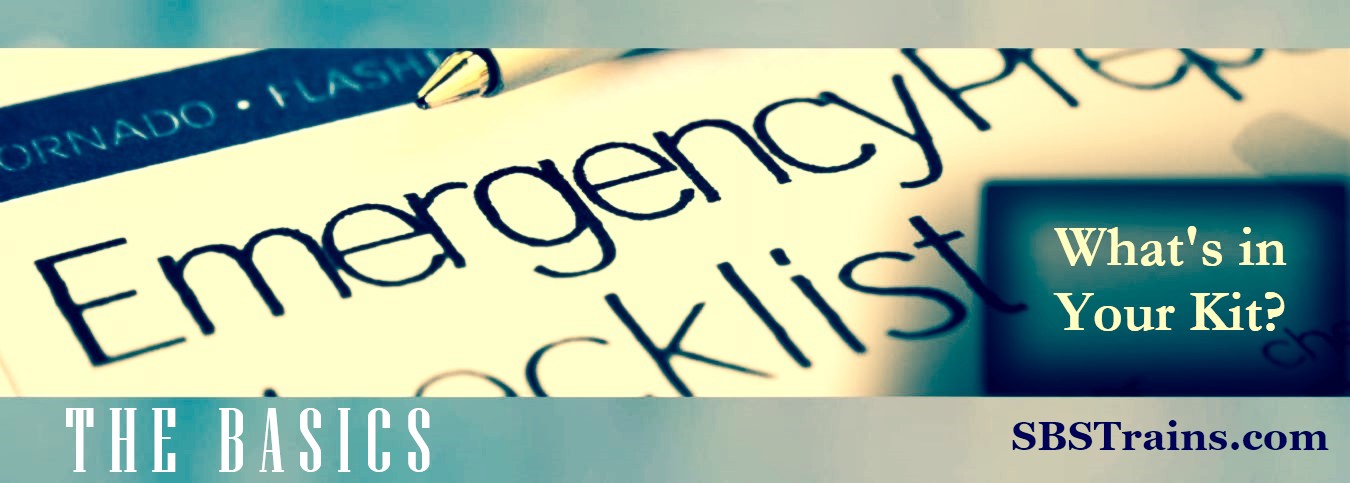All of this information usually serves to make people essentially throw up their hands in frustration and confusion. While many sites promote basic skills or "bare essential" preparations, they quickly devolve into fairly in-depth techniques, methods, and undoubtedly a list of equipment that the author deems "must have".
When you don't know what you need you are very susceptible to suggestion and subsequently in many cases end up either obtaining a variety of “stuff” that you are unsure what to do with or more frequently just don't do anything at all.
Real emergency preparation does not have to be that involved, in-depth or complicated, undoubtedly you already have most if not all of the items you will need for short term survival.
The Term Survival
Before proceeding, I think it is worth spending a second to talk about the term “survival”, as it means many things to many people. For the hardcore survivalist, “survival” means the ability to live off the land for an indefinite period. While this definition is probably what many people think of, in most cases it is not practical as it requires a pretty high degree of interest and effort. I would offer that the term "survival" for the majority of people really means being able to sustain yourself until emergency services can arrive and the environment can get up and running again or you can move to a location that is more functional.
With this new definition of survival, we can then take a detailed look at what is required, what you might need and perhaps give you some ideas as to what you can do before an event to prepare yourself just "enough" to make it through it all.
Spend time thinking about the emergencies you might face
One last note before we delve into preparation; you do need to spend a little time honestly thinking about what types of emergencies you might face. Sure, we all face something catastrophic like an asteroid slamming into the earth; this is not what this article is addressing. What we are talking about are the more mundane (yet deadly) emergencies such as floods, earthquakes, blizzards, hurricanes, pandemic’s, etc. In most cases we are talking about 24-72 hours of surviving maximum.
So, what should you look at? First, you need to think about the emergencies like I listed above and just give some thought to ones that may affect your area.
Emergency Preparation, the Basics
This is not going to dramatically change the preparations although it may add to it. Finally, let’s talk about what you basically need and we will leave the emergency related "add-ons" up to you. In order to develop a list, we need to break down the categories;
Shelter:
Assuming that your residence is damaged and is not able to be stayed in, shelter can be any number of things ranging from your vehicle to a tarp. The key here is to know where your tarps are so you will know where to get them. You want something that is water resistant at a minimum and obviously large enough to get you and your family under.
Medical:
If you are on any prescriptions that are necessary to keep you alive, you need to have these medications with you at all times, extra bottles in multiple locations "just in case". A very basic medical kit available from practically anywhere is a great thing to have for everyday issues as well as emergencies. You do not need training as a Paramedic, but a little understanding of stopping bleeding, broken bone care, etc. can be well worth the time even if it is just watching a video on the subject.
Light:
As a civilized society, many of us have never had to exist in an area where there wasn't any electrical light of any kind. It has been said that in large cities during power outages, people have called 911 reporting “weird lights” only to discover they are the stars. Having some type of light source can dramatically change the attitude and morale of the family in times of emergencies. Therefore, it is very helpful to have a variety of flash lights, boxes of matches, etc. available. You do not need 29 flash lights, you probably only need 3 or 4 making sure that at least 1 is inside each of your vehicles. Along with flashlights comes batteries, you have at least a few spares available for whatever types of flashlights you have.
Heat:
Depending on where you live, heat might become a key issue to survival. You do not need a huge heater to survive; you just need something to get you through the event. With the matches, you can make a fire. If you have a propane grille, this could also be used although you need to be very careful not to put one in a small enclosed area. Along with developing a heat source comes having clothing to help fight off the cold. Cheap readily available space blankets are awesome to help stay warm. They are cheap and small enough to get a pile of them and spread them around the house and throughout the vehicles.
Food:
Food is something that many people worry about and there are many companies who have become successful selling emergency rations. Humans can go a surprisingly long time without food. Sure, you will be very hungry during the time but you will not die usually. This is contingent of health, if blood sugar is an issue, you need to plan for this issue by placing “snacks” throughout the house and vehicles as well “just in case”. In most cases normal canned food will suffice, of course you need a way to open it. Other than that, in most cases stocking up on freeze dried “survival” food more times than not, will go to waste unless it is of the nuclear variety that stays edible for 1000 years.
Water:
Unlike food, water is something we as humans cannot go without for a substantial amount of time. Therefore, you should try and keep some bottled or contained water available somewhere or at least put it on the top of your shopping list if a potential emergency is developing (hurricane season, tornado season, etc.)
Defense:
I add defense because to me not a lot could be worse that surviving an emergency only to have someone take advantage of the chaos to harm a family member. Like the word survival, defense conjures up a wide variety of things to different people. I know what my plan is but only you can determine what is appropriate for you and your family. At a very minimum I would recommend something like a baseball bat and perhaps some pepper spray.
What's in your Emergency Preparation Kit?
Obviously, there are many other things that a survival kit could contain, however it is probably likely that during an emergency your “kit” may be unavailable or more likely outdated or ill configured for your situation. I am not saying at all that a kit is not a good thing to have, but if you want a kit or want to build a kit, you need to really think about what you need in it and make good decisions.
Learn more about Emergency Preparation and Disaster Preparedness Training. Or for more information please contact us.

